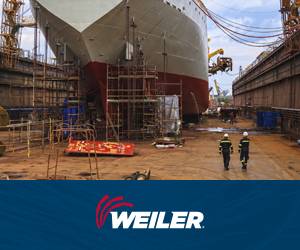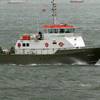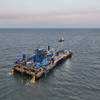The International Maritime Organization (IMO) called on Monday for measures to ensure refuge for troubled ships like the Greek tanker Castor, which was last week turned away from three countries it went to for assistance, Reuters reported.
"The time has come for the organization ... to adopt any measures required to ensure tha t... coastal states review their contingency arrangements so that disabled ships are provided with assistance," Secretary General Bill O'Neil told an IMO committee meeting in London. O'Neil said he was referring specifically to the case of the Castor, which developed a 20-m crack in its deck on New Year's Day and has since been unsuccessfully seeking a sheltered port in which to unload its 29,500 ton cargo of gasoline. Morocco, Spain and Gibraltar have been approached. The ship's owner, Athenian Sea Carriers, says it fears the tanker could explode. Tanker experts said a spark from the deck plates grinding along the crack could ignite the cargo.
"That incident brought to light once again the question of ports of refuge," said O'Neil.
Chief Executive Officer of Athenian Sea Carriers, Nicolas Hondos said on Monday: "The Castor has now been seeking a Port of Refuge for more than one week. Every day that passes, increases the risk of further deterioration in the weather and risk to lives and of pollution."
Hondos said there was a large team of experts on the scene, fully supported by tugs and equipment. The ship is in the tow of the world's most powerful salvage tugboat, Nikolay Chiker, the crew having abandoned ship late Friday.
"Further discussions are now taking place with the salvage team on board with a view to producing a detailed plan, which is expected to be submitted to the Spanish Maritime Authorities by January 9," said the company.
There are currently no legal obligations on coastal states to provide "ports of refuge" nor is there a definition of what constitutes a "ship in distress," an IMO spokesman said.
On December 8, the damaged VLCC Eastern Power, carrying 250,000 tons of Iraqi crude, was refused entry to Canadian waters after it reported a minor leak during heavy storms. It eventually continued through heavy seas to St Eustatius in the Caribbean for the cargo to be offloaded. The tanker Erika was also refused refuge in December 1999 before it broke apart in a storm, leading to a major spill of fuel oil across the coastline of Brittany. The tanker owners association Intertanko said that it urged the Spanish authorities to inspect the Castor and designate a port of refuge. "Three days later and the situation has not improved," acting Managing Director Svein Ringbakken told Reuters on Monday. "The issue of ports of refuge is a difficult one to resolve," he said, "but that doesn't mean we shouldn't make an effort."
Sponsored Content
Protect Your Crew. Exceed Weld Standards.

MSC Sets a New Standard for Time Off in 2025, Plus Earn a $44,345 Bonus as an Able Seaman!

Subscribe for
Maritime Reporter E-News
Maritime Reporter E-News is the maritime industry's largest circulation and most authoritative ENews Service, delivered to your Email five times per week










